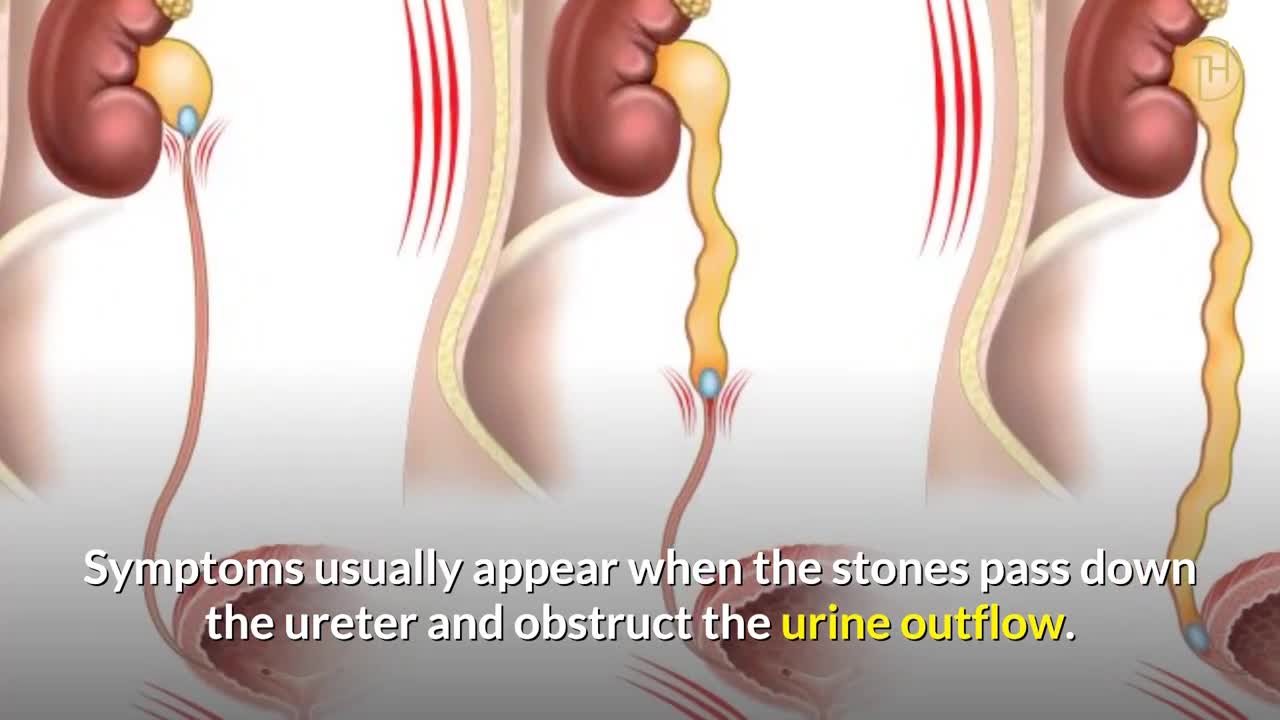Premium Only Content

Symptoms Of Kidney Stones _What Are The Most Common Signs & Symptoms Of Kidney Stone Disease
Kidney stone disease, also known as nephrolithiasis, is a common urological problem among many people.
Kidney stones are often medically referred to as renal calculi. These calculi typically originate within the kidneys.
However, sometimes they can pass down in to the ureters, and bladder, and can cause obstruction of the passage of urine.
Four major types of renal calculi present.
Calcium stones, accounting for about 75% of cases.
Magnesium ammonium phosphate stones.
Uric acid stones.
And cysteine stones.
In addition, certain medications also responsible for kidney stones.
Some of these include indinavir, Atazanavir, Silicate, and Sulfa drugs such as sulfasalazine, and sulfadiazine.
Hypercalciuria, or high calcium in urine is the most common metabolic abnormality that leads to the formation of calcium stones.
Some cases of hypercalciuria are related to increased intestinal absorption of calcium some are related to hormone abnormalities, like hyperparathyroidism.
In addition to hypercalciuria, other factors that leads to increased formation of kidney stones include low fluid intake.
Family history of kidney stone disease.
Hyperuricemia, or high uric acid levels in blood due to high intake of protein-rich foods, or due to inherited conditions.
Urinary tract infections.
And low citrate levels in blood.
Well, what are the most common symptoms of kidney stone disease?
People with kidney stones usually have severe back pain. This pain is also referred to as renal colic.
Renal colic usually occurs when the renal stones pass down in to the ureters, and compromise the urine outflow.
Renal colic is extremely severe and it is like somebody stabs you in the back with a sharp knife. And sometime the pain may radiate to the groin area.
The pain starts suddenly, and may fluctuate as the stone moves.
In addition, passing blood in urine, or hematuria,
Nausea and vomiting,
Low urine output,
Pain during urination,
High grade fever, are some other symptoms of renal stone disease.
Smaller stones may sometimes will not cause any symptoms.
So, how to treat renal stone disease?
Well, if the stones are smaller in size, they may spontaneously pass out when the person urinates.
However, this could be extremely painful.
Sometimes, medications are given to dissolve these stones, as well as to prevent further formation of new stones.
And if the person is having a urinary tract infection, antibiotics may be given.
For larger stones, surgical intervention may be needed.
Drinking a plenty of water,
Taking a low sodium and protein diet,
Uptake of food that are rich in citrate, which can inhibit the production of renal stones are recommended for prevention of kidney stone disease.
Thanks for watching!
Hope someone found this video helpful!
#KidneyStones #Nephrolithiasis #SymptomsOfKidneyStones
-
 LIVE
LIVE
Barry Cunningham
2 hours agoPRESIDENT TRUMP MAKES SPEECH ABOUT AI
1,366 watching -
 1:25:34
1:25:34
Kim Iversen
2 hours agoEpstein to Empire: Scott Horton Unpacks the Lies That Led Us Here
69.8K30 -
 53:22
53:22
Candace Show Podcast
3 hours agoBREAKING! Brigitte Sues Me For Defamation | Candace Ep 218
44.2K92 -
 UPCOMING
UPCOMING
The Mike Schwartz Show
2 hours agoTHE MIKE SCHWARTZ SHOW Evening Edition 07-23-2025
52 -
 UPCOMING
UPCOMING
Mally_Mouse
7 hours agoLet's Hang!! - P.O. Box & Chill - WE HIT 10,000!!!
210 -
 UPCOMING
UPCOMING
Quite Frankly
7 hours ago"Pharma in Schools & Russia OP Revived!" ft Barbie Rivera 7/23/25
1.26K1 -
 12:03
12:03
Chrissy Clark
6 hours agoIs Stephen Colbert’s Firing “MAGA Cancel Culture”?
2041 -
 1:48:16
1:48:16
Redacted News
3 hours agoSomething BIG is happening in Ukraine, new CIA coup? Putin launches new massive offensive | Redacted
131K37 -
 LIVE
LIVE
Robert Gouveia
1 hour agoObama CRIMINAL REFERRAL!! Tulsi Drops MOTHERLODE! Senators DEMAND Charges!
1,770 watching -
 LIVE
LIVE
Dr Disrespect
7 hours ago🔴LIVE - DR DISRESPECT - 10 WINS CHALLENGE - BIG ANNOUNCEMENT AT 12PM PT
1,804 watching